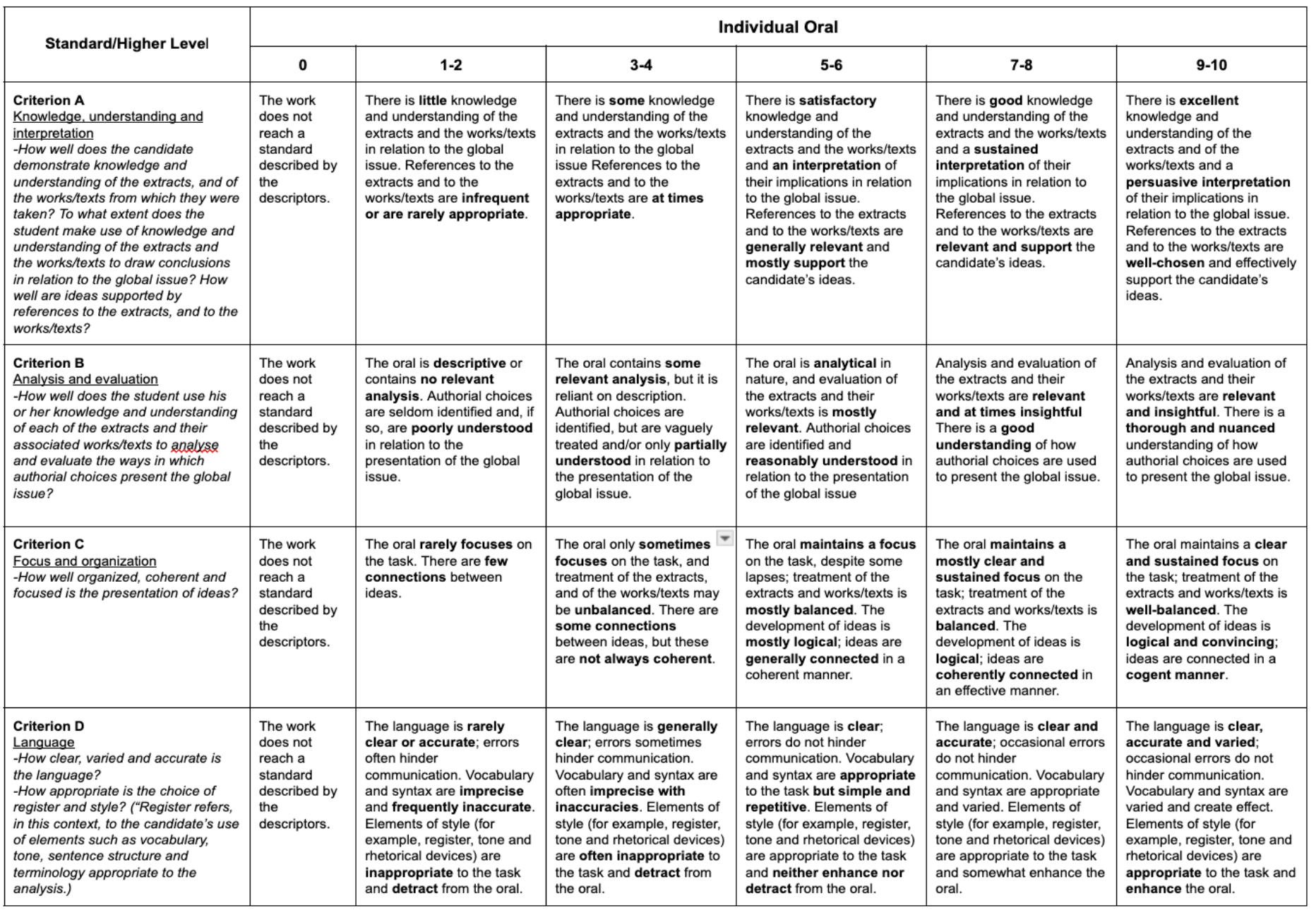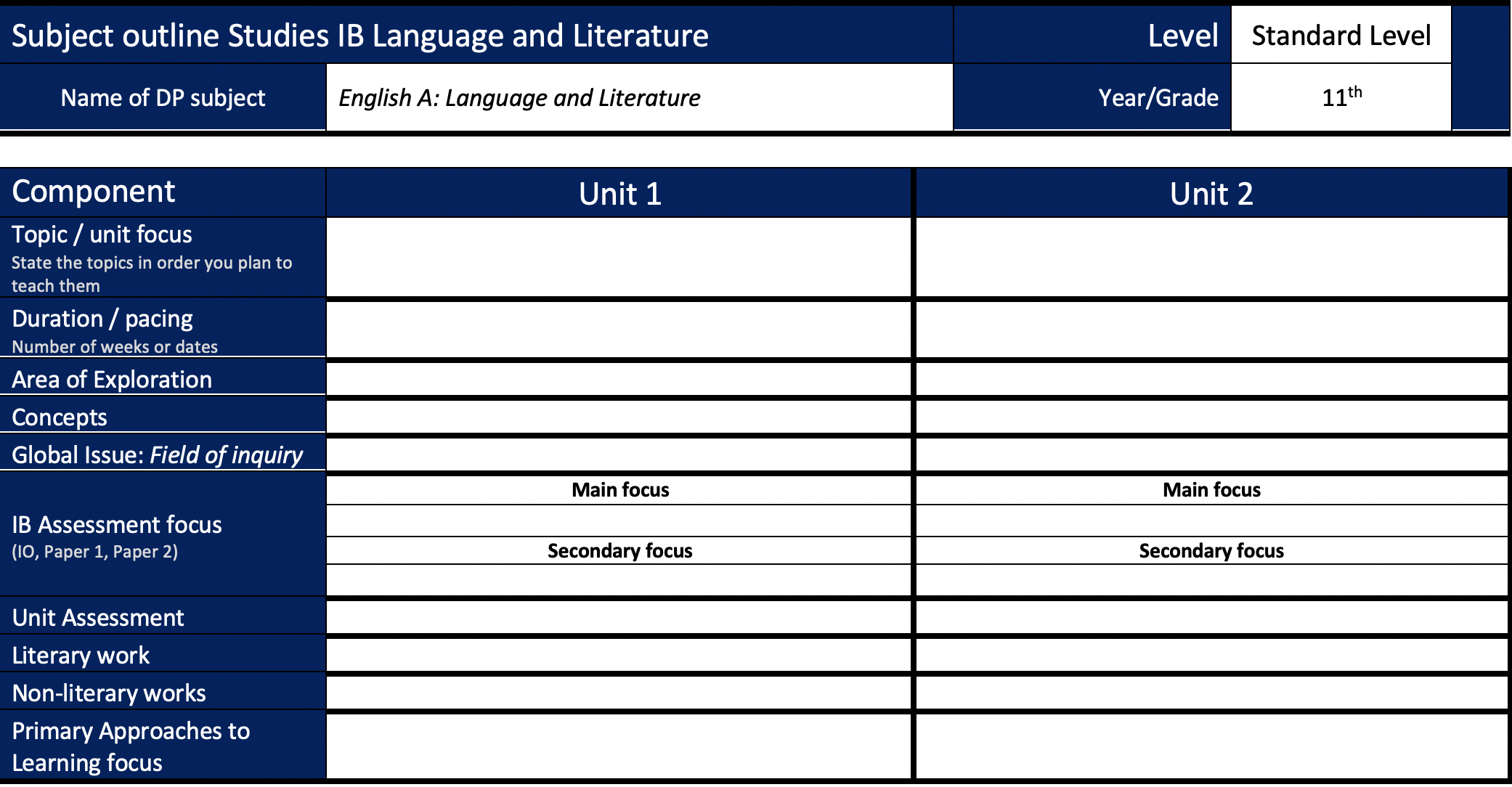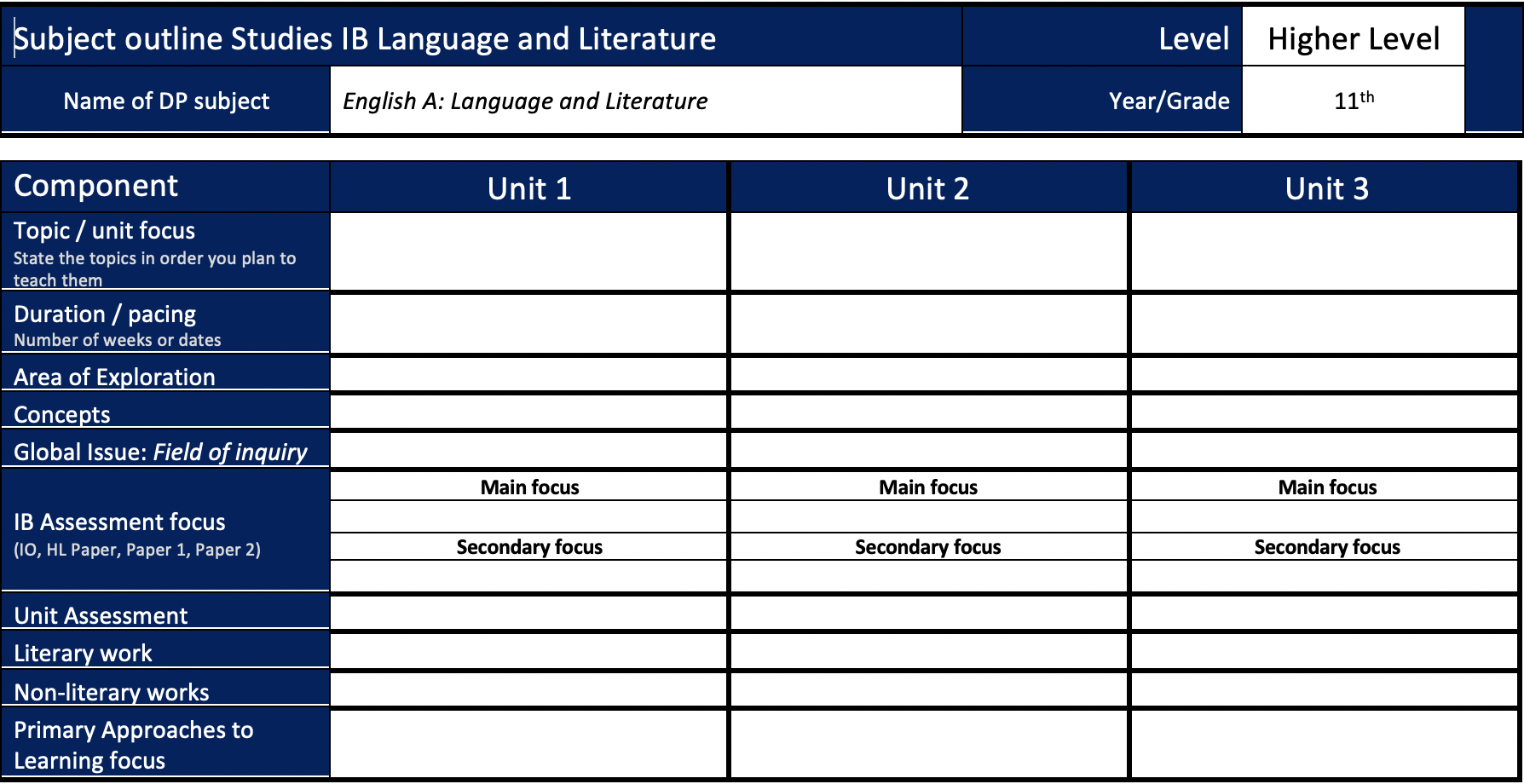Your Custom Text Here
Session 2: The value of the written curriculum
The International Baccalaureate develops flexible curriculum framework designed to offer educators a springboard for designing a cohesive course, that is tailored to the needs of students in the local school context and is aligned to rigorous and varied assessment through which learners grow and develop over time.
Module 1 - Turning values into process: the purpose of course design
The nature of the subject
The IB provides a statement to preface each subject guide that articulates the value of the subject.
What does this statement tell us about the role this course plays in the holistic development of students across their whole learning experience, and how can it inform the approach we take to planning the delivery of the course?
Read the full introduction to the subject
Language A: Language and Literature guide - QUICK LINKS
Module 2 - IB Assessment components and course organization
Using assessment rubrics to activate learning
How can we adjust the assessment criteria so that it facilitates student peer- and self-assessment and supports the development of students’ evaluative judgment?
Language A: Language and Literature guide - QUICK LINKS
Module 3 - Creating a course overview for planning units of study
The course outline templates
These templates provide a framework for high level planning across the year. Both Standard Level and Higher Level courses contain the same components, however the number of literary texts selected differs and the Higher Level course requires students to prepare an essay, which is externally assessed.
Teachers of Language and Literature HL may wish to pace the course using the SL template, where only 4 units are taught across the school year. This would still provide ample opportunity to teach the minimum requirement of 6 literary texts.
Using templates like these can provide teachers with more forethoughts as they head into the unit planning process, as approximately one third of the unit planning elements are laid out in the subject outline.
Unit Planning Resources - QUICK LINKS
SL and HL minimum text requirements
Literary and non-literary text types
Areas of Exploration and Key Concepts
Global Issues




